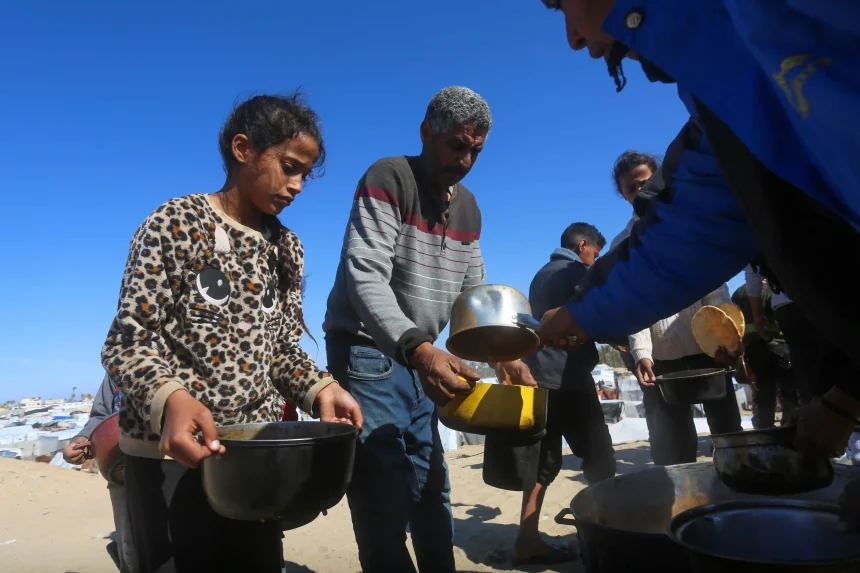A few organizations demanded an interim ruling prohibiting Tel Aviv from blocking aid from entering Gaza hours after Israel’s declaration, arguing that the action was illegal under international law.
Similar to the siege it placed on the enclave in the early days of its conflict, Israel has banned all food and other goods from entering Palestine’s Gaza. The move has drawn harsh criticism from the UN and other humanitarian relief organizations, which claim it violates international law.
Israeli Prime Minister Benjamin Netanyahu acknowledged using starvation tactics against the people of Gaza to put pressure on the Palestinian organization Hamas, but he refused going to the second phase of the ceasefire and prisoner swap agreement on Sunday.
Hours after the first phase of the ceasefire deal in Gaza ended, the Israeli authorities stopped allowing humanitarian aid to enter the territory.
The foreign ministry of Saudi Arabia described it as “an instrument of extortion.” Oxfam described it as “a careless act of collective punishment.”
Israel was accused of using “starvation as a weapon” by Egypt, a key mediator.
Over 2 million people in Gaza have experienced hunger during the conflict, and some humanitarian specialists have issued famine warnings.
There are now worries that the gains made during the last six weeks of a truce may be lost.
Israel also threatened to relaunch the conflict if it felt that the first round of talks were fruitless.
The shaky truce was made more precarious by the fact that the second phase of negotiations was supposed to begin a month ago.
Hamas has demanded the start of those negotiations.
Israel declared later Sunday that aid to Gaza would be immediately stopped.
Israel’s declaration and decision to stop funding have not been made public by the Trump administration.
While hundreds of vehicles carrying aid occasionally waited to enter, humanitarian organizations frequently criticized Israel for its limits on what could be brought into the small coastal area.
However, Gazan Palestinians were able to stockpile some supplies.
The Norwegian Refugee Council stated on Sunday that while the ceasefire provided some much-needed assistance to Gaza, it was insufficient to meet the country’s enormous demands.
Hours after Muslims in Gaza celebrated the first breaking of the fast during the holy month of Ramadan, Israel made its announcement.
Implications for the law
Statements referring to the decision as a violation were prominent in the first condemnation of Israel’s aid cutoff.
UN humanitarian chief Tom Fletcher stated, “International humanitarian law is clear: We must be allowed access to deliver vital lifesaving aid.”
Five NGOs petitioned Israel’s Supreme Court for an interim order prohibiting the state from blocking aid from entering Gaza hours after Israel made its announcement, arguing that the action was a war crime and a violation of Israel’s duties under international law:
“Political considerations cannot condition these obligations.”






